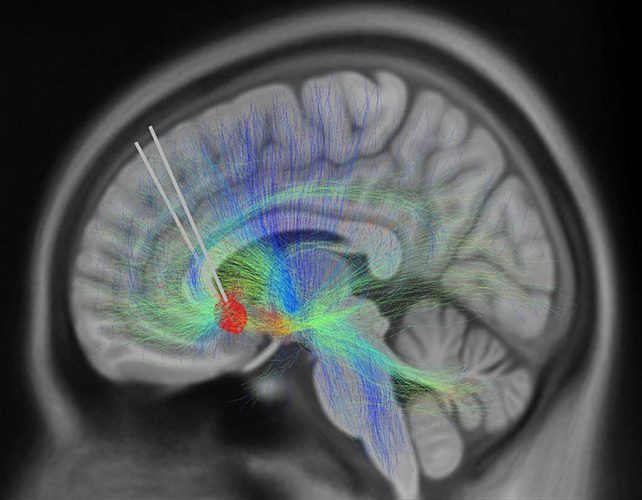TL;DR:
- Recent study combines deep brain stimulation (DBS) therapy with AI analysis to monitor depression treatment.
- AI identifies a brain signal linked to recovery with over 90% accuracy.
- AI trained using brain images to detect neurological changes beyond human perception.
- The AI’s predictive capabilities offer a more data-rich alternative to self-reporting.
- Potential for a significant shift in depression monitoring and personalized treatment approaches.
Main AI News:
In a breakthrough that could revolutionize the field of mental health, recent research has unveiled a promising avenue for monitoring and treating depression. Ten patients with treatment-resistant depression participated in a groundbreaking six-month study involving deep brain stimulation (DBS) therapy, an approach that had yielded inconsistent results in the past. However, the inclusion of artificial intelligence (AI) technology in this study has the potential to reshape the landscape of depression treatment.
The efficacy of DBS relies on precise tissue stimulation, a challenge traditionally addressed through subjective patient feedback. Such feedback can be influenced by external factors, making it an unreliable measure of treatment success. To overcome this limitation, a team of researchers from the Georgia Institute of Technology, Emory University School of Medicine, and the Icahn School of Medicine at Mount Sinai harnessed the power of AI and electrode implants to identify critical changes in brain activity patterns induced by DBS.
This collaborative effort culminated in the discovery of a unique brain signal that serves as a biomarker for depression recovery. This signal offers an invaluable tool for gauging the effectiveness of DBS treatment, boasting an impressive accuracy rate of over 90%. Dr. Helen Mayberg, a neurologist from the Icahn School of Medicine at Mount Sinai, underscores the significance of this finding: “Nine out of 10 patients in the study got better, providing a perfect opportunity to use novel technology to track the trajectory of their recovery. Our goal is to identify an objective, neurological signal to help clinicians decide when, or when not, to make a DBS adjustment.”
The AI employed in this study underwent training using brain images captured at the beginning and end of the therapy, allowing it to discern neurological distinctions imperceptible to the human eye. For example, one patient exhibited positive responses to treatment for four months before experiencing a relapse. Remarkably, the recovery signal vanished a month before the relapse, highlighting the AI’s predictive capabilities.
With AI now primed for further research, the potential benefits are extensive. Researchers can amass a wealth of data beyond self-reporting, facilitating more refined treatment approaches. In the event of a relapse, DBS treatment can be swiftly adjusted, potentially preventing a recurrence.
While there are still hurdles to overcome, such as the reluctance of some individuals to undergo brain electrode implantation, this study represents a significant step forward in depression monitoring and personalized treatment. Dr. Christopher Rozell, a neuroscientist at the Georgia Institute of Technology, reflects on the study’s broader implications: “We showed that by using a scalable procedure with single electrodes in the same brain region and informed clinical management, we can get people better. This study also gives us an amazing scientific platform to understand the variation between patients, which is key to treating complex psychiatric disorders like treatment-resistant depression.”
Conclusion:
The integration of AI into depression treatment through deep brain stimulation marks a significant advancement. The identification of an accurate biomarker for recovery, combined with the AI’s predictive capabilities, paves the way for more precise monitoring and tailored treatment. This development has the potential to revolutionize the mental health market, offering new hope for individuals struggling with depression and opening opportunities for innovative solutions.

